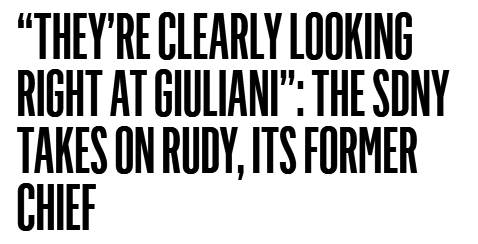Baghdadi is dead, readings..
October 28th, 2019[ by Charles Cameron — some quick recommendations, under pressure of time ]
.
Baghdadi is dead, and as the dust settles we can re commend some readings.
**
Our friend Tim Furnish has provided his WikiStrat entry, moving from the news otself (1) via apocalyptic fervor (2) to the eschatological implicationos of ISIS’ future (3), the latter reading:
ISIS remains, however, an eschatological movement dedicated to preparing the way for the coming of the (Sunni) Mahdi. It’s thus enamored with “hotwiring the apocalypse,” and this fervent belief will not end with the death of the Caliph.
Hotwiring the apocalypse is a concept the late Israeli analyst Reuven Paz offered up in a 2006 piece titled Hotwiring the Apocalypse: Jihadi Salafi Attitude towards Hizballah and Iran. A dozen years have passed since Paz wrote his piece, and the journey from “Hazbollah and Iran” to ISIS in the wake of its Caliph’s death is a long and winding one, but Dr Paz’ phrase continues to cover the possibility that an end-times oriented jihadism may seek to bring about the final sequence of events by threatening, inciting or unleashing sufficiently impressive violence. As Dr Furnish has pointed out with respect to Iranian (Shi’ite) eschatology, the great disadvantage of unleashing violence of sufficient potency is that it would leave the earth, or at least its holiest lands, devastated just as the Mahdi arrives to begin his rule over it.
Wikistrat, After Abu Bakr al-Baghdadi: a special report
**
Graeme Wood is one of the most perceptive writers on ISIS and its religious impetus, author of What ISIS Really Wants, the article which first revealed ISIS’ apocalyptic driver to a wide audience. His Atlantic piece yesterday, Baghdadi’s Final Humiliation. Most striking of Wood‘s insights as I read him:
For Baghdadi to seek refuge among people who want to kill him probably means that the places where he had more support, such as within his home country of Iraq or near its border with Syria, could no longer provide him with any measure of safety. Finding him in HTS territory is like finding Derek Jeter hiding out in South Boston, or Martin Bormann living quietly by a synagogue on the Upper East Side.
Graeme Wood is a gifted writer, working here in a field of rubble and human destruction, and it is always a pleasure to read him.
Graeme Wood, Baghdadi’s Final Humiliation
**
The great Rukmini Callimachi spent, she says, months working on the obituary of Baghdadi. Other writers find themselves confronted with a newly urgent topic to cover with Baghdadi‘s death. Callimachi, who also discovered and reported with AP an amazing cache of Al Qaida documents in 2013 Timbuktu — a cache which included “corporate workshop schedules, salary spreadsheets, philanthropy budgets, job applications, public relations advice and letters from the equivalent of a human resources division” — has somehow found time along with her grueling travel and reporting schedule, to prepare an extensive obit for Baghdadi — ready for publication now that news of his death can be dropped in:
NYT, Abu Bakr al-Baghdadi, ISIS Leader Known for His Brutality, Is Dead at 48
The son of a pious Sunni family from the Iraqi district of Samarra, al-Baghdadi parlayed religious fervor, hatred of nonbelievers and the power of the internet into the path that catapulted him onto the global stage. He commanded an organization that, at its peak, controlled a territory the size of Britain from which it directed and inspired acts of terror in more than three dozen countries.
Al-Baghdadi was the world’s most-wanted terrorist chieftain, the target of a $25 million bounty from the American government. His death followed a yearslong, international manhunt that consumed the intelligence services of multiple countries and spanned two American presidential administrations.
Callumachi and and Falih Hassan cover a lot of ground in few words. Here, for instance, is the brief overview of Baghdadi‘s attempt at a caliphate:
Although Osama bin Laden, the Qaeda leader, had dreamed of restoring the caliphate, he was reluctant to declare one, perhaps fearing the overwhelming military response that eventually cost al-Baghdadi his territory.
Yet it took five years before troops seized in March the last acre of land under al-Baghdadi’s rule. And in the interim, the promise of a physical caliphate electrified tens of thousands of followers who flocked to Syria to serve his imagined state.
Part of the caliphate’s excitement, attraction and repulsion came form its sheer brutality — some of it scripturally sanctioned, some definitely and indeed defiantly not:
Women accused of adultery were stoned to death, thieves had their hands hacked off, and men who had defied the militants were beheaded.
While some of those medieval punishments are also meted out in places like Saudi Arabia, the Islamic State shocked people around the world by televising its executions. It also offended Muslims by inventing horrific punishments that are not mentioned in Islamic scripture.
A Jordanian pilot was burned alive in a scene filmed by overhead drones. Men accused of being spies were drowned in cages, as underwater cameras captured their last tortured gasp. Others were crushed under the treads of a T-55 tank, or strung up by their feet inside a slaughterhouse and butchered like animals.
With the destruction of the geographical caliphate, the internet’s role becomes increasingly significant:
The militants harnessed the internet to connect with thousands of followers around the globe, making them feel as if they were virtual citizens of the caliphate.
The message of these new jihadists was clear, and many of those on whose ears it fell found it emboldening: Anyone, anywhere, could act in the group’s name. That allowed ISIS to multiply its lethality by remotely inspiring attacks, carried out by men who never set foot in a training camp.
In this fashion, ISIS was responsible for the deaths of thousands of people around the world. A shooting at an office party in San Bernardino, Calif. An attack on a Christmas market in Germany. A truck attack in Nice, France, on Bastille Day. Suicide bombings at churches on Easter Sunday in Sri Lanka.
Baghdadi‘s death will do little more than cause a pause in this virtual empire of jihad-enthusiasts — the story goes on..
For a whole other strand of Rukmini‘s commentary, see her unrolled Twitter-thread from today’s feed:
Threadreader, Two sources have confirmed..
**
Richard Engel for MSNBC is another journalist with in-field expertise, and his story of the informant who assisted US troops in the eventual raid on Baghdadi‘s compound is stunning —
General Mazloum Abdi of the Syrian Democratic Forces said his intelligence service had a source deep in Baghdadi’s inner circle who described a room-by-room layout of the terrorist’s compound on the Turkish border, including the number of guards, floor plan and tunnels.
Kurdish intelligence operatives who managed the source passed that information to American forces, giving U.S. Special Ops a better understanding of Baghdadi’s safe house before striking it, according to Abdi.
Abdi, who is also known as Mazlum Kobane, said the unidentified source was on location during the raid and left with the attacking U.S. forces.
MSNBC, Kurdish informant provided key intel in operation that killed ISIS leader
— more detail is no doubt still to come..
**
Well, that’s about all I van manage today. I think you’ll find a mine or two of valuable information here, if you read deep in.
I’ve a medical appointment after lunch which will wipe me out for the day, and hope to pick up with a piece on the issue of Baghdadi‘s possible successor(s), the Mahdi and the Day of Judgment tomorrow.
Until then!








